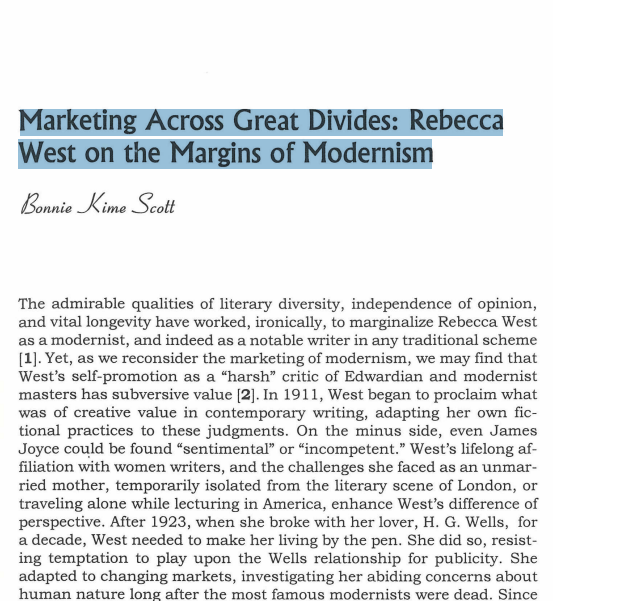Marketing Across Great Divides: Rebecca West on the Margins of Modernism
Abstract
The admirable qualities of literary diversity, independence of opinion,
and vital longevity have worked, ironically, to marginalize Rebecca West
as a modernist, and indeed as a notable writer in any traditional scheme
[1], Yet, as we reconsider the marketing of modernism, we may find that
West’s self-promotion as a “harsh” critic of Edwardian and modernist
masters has subversive value [2], In 1911, West began to proclaim what
was of creative value in contemporary writing, adapting her own fictional practices to these judgments. On the minus side, even James
Joyce could be found “sentimental” or “incompetent.” West’s lifelong affiliation with women writers, and the challenges she faced as an unmarried mother, temporarily isolated from the literary scene of London, or
traveling alone while lecturing in America, enhance West’s difference of
perspective. After 1923, when she broke with her lover, H. G. Wells, for
a decade, West needed to make her living by the pen. She did so, resisting temptation to play upon the Wells relationship for publicity. She
adapted to changing markets, investigating her abiding concerns about
human nature long after the most famous modernists were dead. Since
her own death in 1983, there has been a continuing flow of new material.
Downloads

